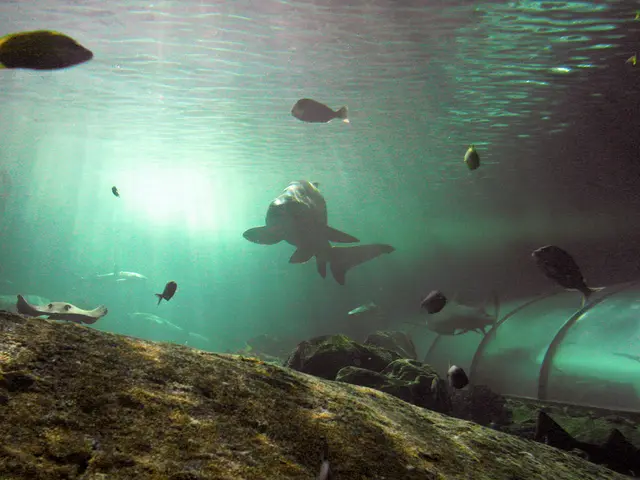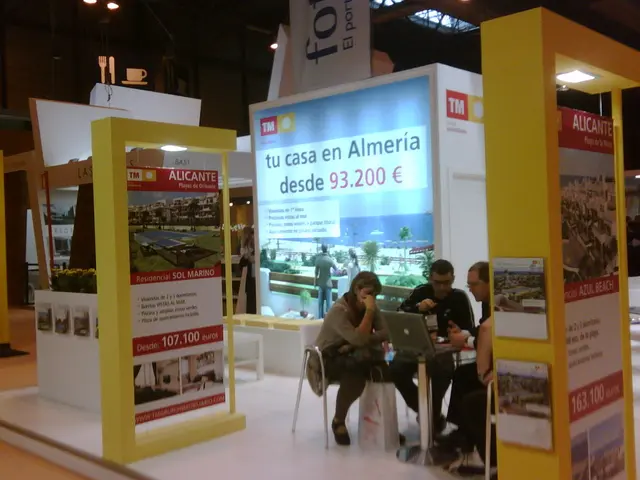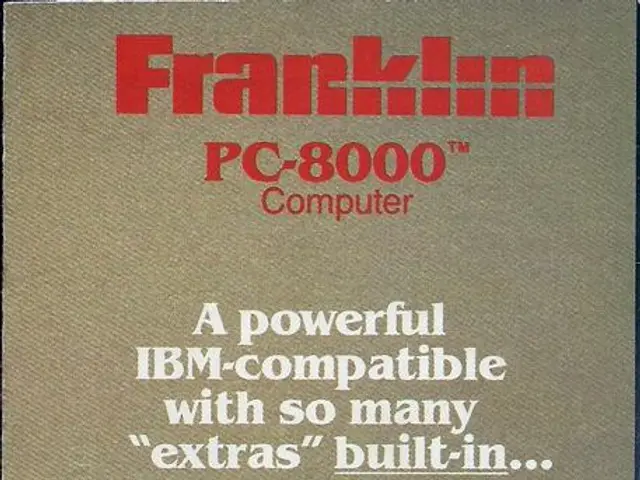European Model Shines in Romania's Deposit Refund Scheme: Leading the Way in Sustainability Discourse
In a turn of events that's putting Romania on the European map, the Deposit Return System (DRS) by RetuRO is revolutionizing sustainability efforts. This groundbreaking circular economy project, celebrated at the Packaging Waste & Sustainability Forum 2025, has been spearheaded by none other than Gemma Webb, the fearless CEO and Chair of RetuRO's Board of Directors.
The forum, a hotspot for industry leaders, decision-makers, and international experts, discussed pressing topics related to the circular economy, such as public policies, production processes, materials used, and waste management. It was through this lens that Gemma Webb addressed the crowd, pointing out how Romania managed to build a system from scratch and transform it into a model of efficiency and collaboration, earning it a nod in Europe's circular economy discussions.
RetuRO's attendance at the event only strengthened Romania's position as a beacon of sustainable initiatives across Europe. Speaking about the significance of the event, Gemma Webb commented, "For RetuRO, being here is a testament to the hard work we've put in during our first year of operation. It confirms that Romania is on the right track in transitioning to a circular economy, and we, as member states, have much to learn from each other in our efforts to create functional and harmonized systems."
After just a year, RetuRO is seeing impressive results: a whopping 3.5 billion collected packaging units, 93% of which have already been sent for recycling, and an average collection rate surpassing 80% over the past seven months. As Gemma Webb shared at the forum, "The system is running smoothly, and we achieved this remarkable result in just one year of preparation, with no infrastructure, equipment, or initial resources – a true feat for a startup. With the system in place, we consistently collect over 80% of the packaging on the market across all three material categories – plastic, metal, and glass. The effects were immediate: streets, rivers, and green spaces became cleaner, making this a major success."
Implementing the DRS in Romania's diverse economic and social landscape hasn't been without its challenges. The nation had to establish a national logistics infrastructure from scratch, inform millions of citizens, and mobilize tens of thousands of retailers and producers. Nevertheless, a well-defined legislative framework ensured a solid foundation for the system's uniform functioning.
As Gemma Webb noted at the forum, "The complexity of our Deposit Return System should not be underestimated. We're dealing with around 80,000 retailers, 4,000 producers and importers, and a population of 19 million people. But with a well-defined legislative framework, all retailers are required to be part of the system, ensuring the ecosystem operates smoothly."
Romania's DRS is now an exemplary model for other states, particularly in the face of the new European packaging legislation – the Packaging and Packaging Waste Regulation (PPWR). The PPWR sets ambitious targets for 2030, such as single-use plastic beverage bottles containing at least 30% recycled material and all packaging being widely recyclable by 2035. Romania's swift transition to a circular economy and the lessons learned from the challenges it has overcome make it an inspiration for other states.
When it comes to recycling rates, Romania has experienced a significant shift since implementing the DRS. In 2022, the overall recycling rate in Romania was merely 13%, with packaging recycling hovering around 40%. However, after just one year, these figures have skyrocketed, reaching over 80%. As Gemma Webb shared at the event, "The system is working, but we're still in a process of learning and optimization."
With Romanians embracing recycling in their daily lives, the DRS is proving that a profound change in packaging waste management is possible, even in initially challenging contexts. "Attending this forum isn't just an opportunity for us to share what we've achieved in Romania but also recognition that our DRS implementation model is relevant at the European level. It's an opportunity to actively contribute to the dialogue on the sustainable future of packaging in the EU," Gemma Webb concluded.
In the coming months, RetuRO plans to open two new regional counting and sorting centers for DRS packaging, while optimization efforts will focus on accelerating the registration of small retailers and strengthening collection infrastructure in rural areas to ensure accessibility for all consumers.
In conclusion, Romania's Deposit Return System (DRS) is making impressive strides towards achieving its circular economy goals, and future plans, such as the introduction of reusable packaging, will further magnify its environmental impact and economic benefits. Stay tuned as this interesting story unfolds!
**This is partner content.**
With a high collection rate, over 87% of all beverage containers included in the scheme being collected in the first part of 2025[5], Romania's DRS is demonstrating a strong performance. Europe's new packaging legislation sets ambitious targets for 2030, and Romania is set to exceed these goals thanks to its transition to a circular economy and the lessons learned[1]. The DRS market is witnessing rapid growth, with Tomra Systems reporting their highest quarterly revenue in Romania this quarter[5]. Future plans for the DRS include the introduction of reusable packaging and infrastructure expansion, aiming to further enhance its environmental impact and economic benefits[1][5].
- Romania's Deposit Return System (DRS) by RetuRO, despite initial challenges, has managed to collect over 87% of all beverage containers, setting a strong example for Europe's new packaging legislation.
- The DRS in Romania, spearheaded by Gemma Webb, has shown remarkable success in a short span, with recycling rates skyrocketing from 40% to over 80%, proving its relevance at the European level.
- In the realm of environmental-science and business, Romania's DRS is making headlines with its rapid growth, as demonstrated by Tomra Systems reporting their highest quarterly revenue in the country this quarter.
- The circular economy project, celebrated at the Packaging Waste & Sustainability Forum 2025, is not just a story of sustainability, but also a tale of finance and technology, as Romania moves towards its ambitious recycling targets set by the European Union.
- Looking ahead, the DRS in Romania plans to optimize collection rates, particularly among small retailers and in rural areas, and introduce reusable packaging, aiming to amplify its environmental impact and economic benefits.




